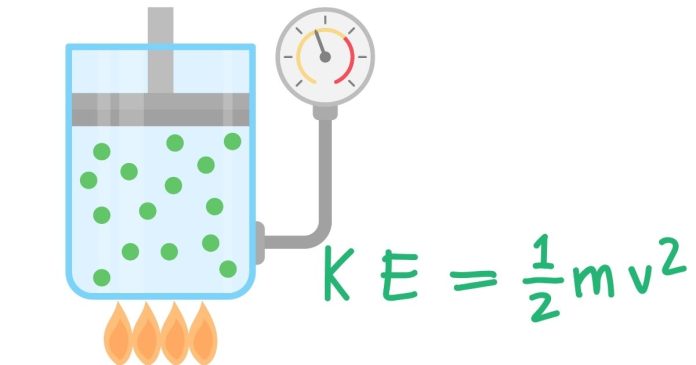Kinetic energy is the energy that an object possesses due to its motion. The amount of kinetic energy (KE) an object has is given by the formula:
KE=1/2 mv 2
Where:
- mm is the mass of the object (measured in kilograms, kg),
- vv is the velocity of the object (measured in meters per second, m/s).
Units of Kinetic Energy:
To understand the units of kinetic energy in detail, we’ll break down the formula.
- The mass mm is in kilograms (kg).
- The velocity vv is in meters per second (m/s).
When calculating kinetic energy, we square the velocity, so the unit for v2v^2 is:
(v)2=(m/s)2=m2/s2
Now, substituting these units into the kinetic energy formula:
KE=21×kg×s2m2
Since the 12\frac{1}{2} is just a constant and doesn’t affect the units, we get:
KE=kg×s2m2
Thus, the units for kinetic energy are kilogram meter squared per second squared (kg·m²/s²), which is defined as joules (J) in the SI system.
Summary of Units:
- Kinetic energy is measured in joules (J).
- The unit for joules is kg·m²/s².


